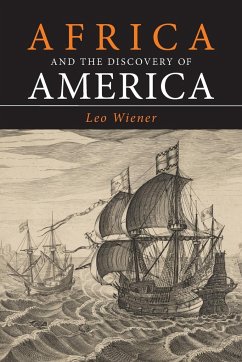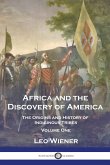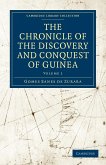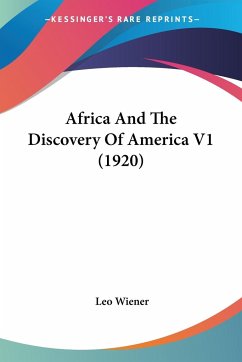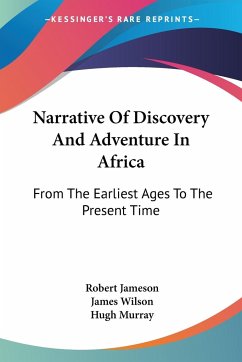2023 Reprint of the 1922 Edition. Full facsimile of the original edition and not reproduced with Optical Recognition Software. This volume comprises volume II in this three-volume series. Professor Wiener, in this second volume of his series Africa and the Discovery of America, deals exhaustively with the documentary information relating to "the presence in America of cotton, tobacco and shell money, before the discovery of America by Columbus. . . The accumulative evidence is overwhelmingly in favor of an introduction of the articles under discussion from Africa by European or Negro traders, decades earlier than 1492." (Foreword, p. ix.) The importance, for the history of Pre-Columbian civilization, of these discoveries cannot be overestimated. Moreover, their significance is not concerned alone with the history of America. They suggest a revision and realignment of historical frontiers in Europe and Africa as well, from a date not later than the first quarter of the fifteenth century. Lastly, Africa and the Discovery of America forms, as it were, a sequel to Professor Wiener's previous scholarship, enabling the historian to trace the influence of the Arabs as the torchbearers of civilization. It was they who in the eighth century, through the medium of the Spanish Mozarabs, recreated European culture, and at a later period, through that of the Arab-Black cultures, of whom the West African Mandingoes were the most important, at least almost entirely recreated, if they did not actually create, the civilization of the native American tribes, throughout both continents, and planted, so to speak, in the New World, the seeds of two great modern industries, cotton and tobacco.
Hinweis: Dieser Artikel kann nur an eine deutsche Lieferadresse ausgeliefert werden.
Hinweis: Dieser Artikel kann nur an eine deutsche Lieferadresse ausgeliefert werden.

